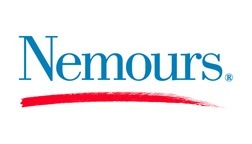Game Changer: Uber-ized Non-Emergency Medical Transportation
// By Jane Weber Brubaker //
Lack of access to reliable non-emergency medical transportation (NEMT) is more than an annoyance for patients who need care. It can prevent them from getting proper treatment and result in poor outcomes.

Ed Woomer, LCSW, patient and family services administrator, Nemours Alfred I. duPont Hospital for Children
The current system is rife with inefficiencies that negatively impact providers and patients. “If you have an unreliable healthcare transportation system, that disrupts the entire clinic day,” says Ed Woomer, LCSW, patient and family services administrator at Nemours Alfred I. duPont Hospital for Children in Delaware. “And it’s a major patient dissatisfier.”
In late 2016, Nemours adopted Circulation, a new Uber-integrated transportation management platform that is helping health systems fill in the gaps. “Transportation is a major pain point in hospitals,” says Robin Heffernan, Circulation’s CEO and co-founder. “There’s so much frustration around patients not being able to get somebody to an appointment on time, or just getting left stranded.”
 Woomer thinks it’s high time that the non-medical transportation system was modernized. “The routine healthcare transportation system prior to Circulation getting involved probably hadn’t changed in 40 years,” he says. “It was old, antiquated, inefficient, and frankly problematic.”
Woomer thinks it’s high time that the non-medical transportation system was modernized. “The routine healthcare transportation system prior to Circulation getting involved probably hadn’t changed in 40 years,” he says. “It was old, antiquated, inefficient, and frankly problematic.”
Regulations and reimbursements control every aspect of hospitals, and transportation is no exception. Here, we’ll look at how an innovative solution, working within healthcare’s existing framework, has transformed a pain point into a positive at Nemours.
This content is only available to members.
Please log in.
Not a member yet?
Start a free 7-day trial membership to get instant access.
Log in below to access this content:

